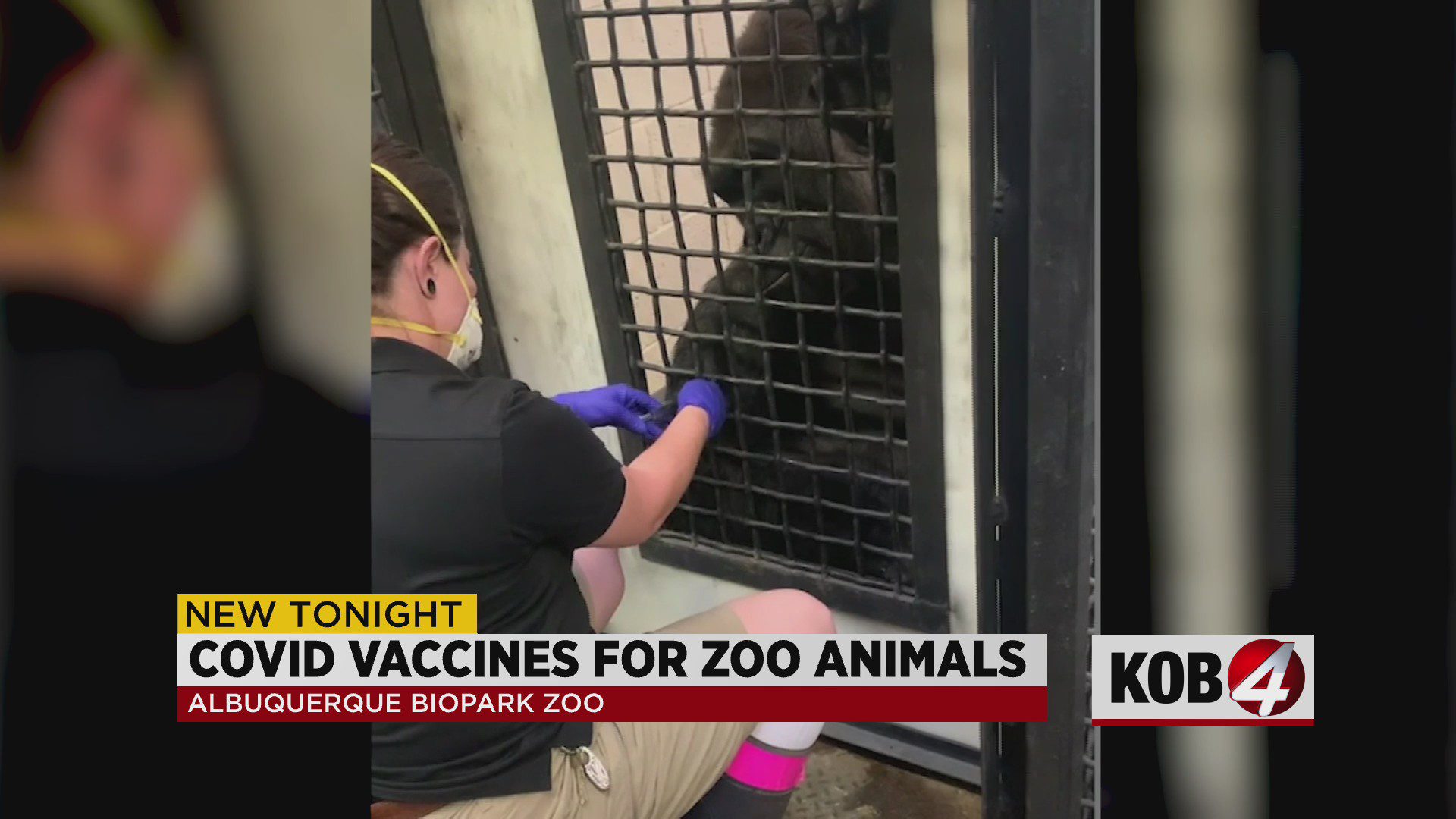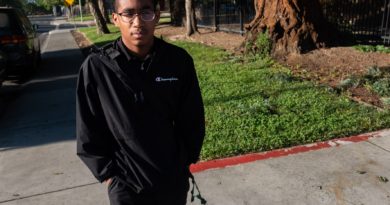Albuquerque BioPark animals receive COVID-19 vaccine
ALBUQUERQUE, N.M. – In New Mexico, zoo animals are next in line for the COVID-19 vaccine.
Zookeepers in Albuquerque started giving out shots to the most vulnerable animals, and it turns out there’s a lot of training that led up to this moment.
“Our keeper staff, our animal care professionals, have good working relationships with these animals and they do training on a daily basis,” said Dr. Carol Bradford a Senior Veterinarian at ABQ BioPark.
Zookeepers work with animals in an area where they’re comfortable, and with a little help from food.
“We work quite a bit with positive reinforcement,” said Bradford.

They train the animals to lean in the body part where they’ll get the injection. They’re then trained on what kind of touch to expect.
“Sometimes we have the zookeeper staff use a syringe with a paper clip or a blunted needled to mimic what the syringe with a needle for a vaccine would be like,” Bradford said.
This kind of training helps the zoo keep the animals healthy. But in the end, zoo staff say it’s up the animal to choose to get the shot.
“We don’t make animals do anything they don’t choose to do,” said Bradford.
The virus has been a big pain for humans, but it’s also been found to impact some animals like apes, and big cats like lions, tigers, and snow leopards.
“And a number of snow leopards have even passed away from complications from COVID,” Bradford said.
There haven’t been cases at the Albuquerque zoo, but from other zoos, we know animals that get infected with COVID may display symptoms similar to what we see in humans.
“We can’t ask animals if they’ve lost their sense of smell or taste, but certainly the coughing and respiratory signs have been similar,” said Bradford.
There aren’t any COVID treatments for animals — beyond extra fluids, rest, and pain relievers. That’s why the Albuquerque zoo and others are focused on prevention.
The zoo got 60 doses of an animal-specific COVID-19 vaccine from the manufacturer Zoetis.
“Although it’s still considered experimental, it has been used by a number of zoos and aquariums to protect their animals,” Bradford said.
Vaccinations began in late June, 30 animals including apes, big cats, and otters now are vaccinated with two doses.




